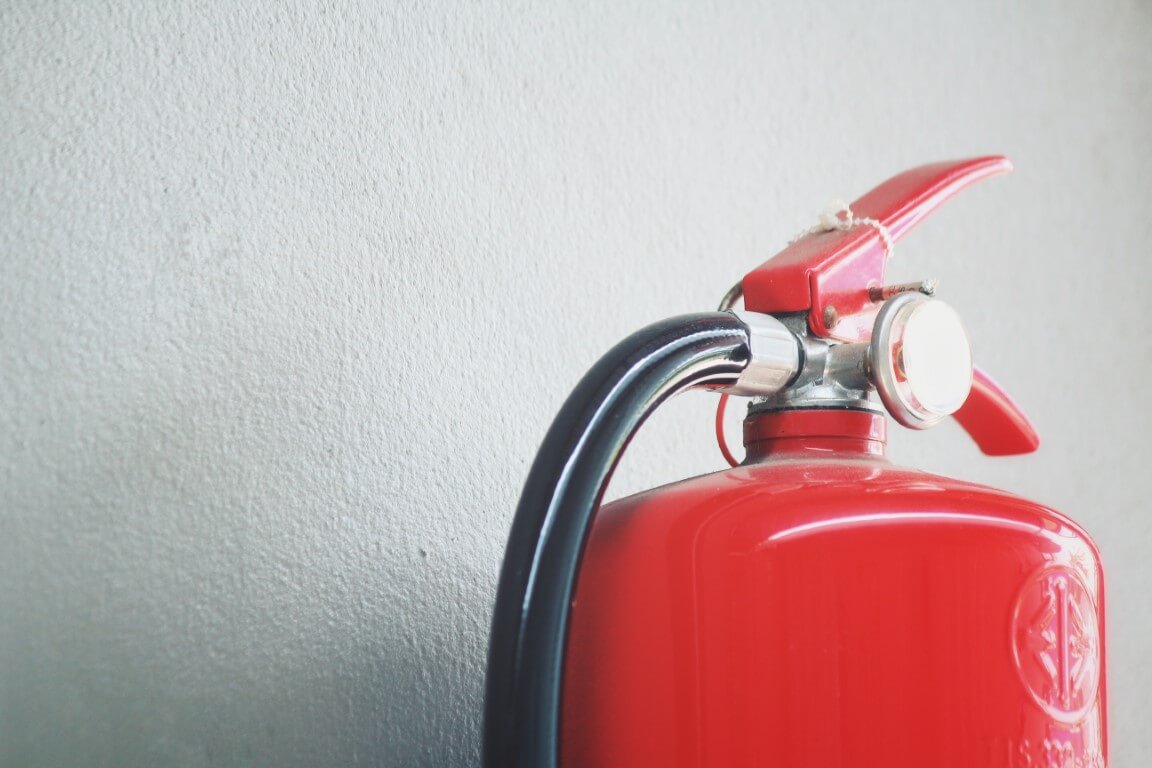This month’s blog, “Fire Safety Guide for Landlords” is your complete, easy-to-read guide. You’ll find everything you need to know about this subject – one of the most critical aspects of your role as a landlord.
Fire is a killer. It moves fast, devasting lives and destroying properties lightning-fast. If you’ve ever watched fire brigade footage of how it takes hold in just a few seconds, you’ll know how shocking it is. Here at Clarity Property Management, we hope you will never experience it –professionally or personally.
As a landlord, there are certain legal obligations you need to meet to ensure that your tenants are safe. It goes without saying that legal action could be taken against you if your accommodation isn’t fire-safe. Also, there would be grave consequences should serious injury (or the worst) happen on your “watch” when or if responsibility for the fire is yours.
Don’t be that landlord who cuts corners.
What Causes Fires?
Fires can happen any time of the year, but the festive season is a prime candidate.
People making merry surrounded by Christmas decorations and candles, as well as increased use of heating appliances; what could possibly go wrong? Well, quite.
Equally, faulty or unattended appliances (a common cause), cigarettes, deep fat fryers and portable heaters are in the firing line, too. Also, electrical faults.
Your Responsibility to Fire Safety
There are useful, practical things that you can do to reduce the risk. In fact, many if not most of these are a legal requirements. Are you one hundred per cent compliant? If not, it’s time to act right here, right now.

1. Smoke and Carbon Monoxide Alarms
Often, it’s not fire that kills people. Instead, it’s being overcome by gas or smoke.
You’ll need smoke alarms on each storey of your property, and a carbon monoxide alarm if there are rooms with solid fuel-burning appliances. Also, you must ensure they’re in perfect working order at the start of a tenancy. Finally, we’d go further, and recommend that someone tests these alarms regularly.
Have you considered a heat detector in the kitchen, too? Fire brigades strongly recommend them, and it’s easy to see why. A sort of belt-and-braces approach, here.
2. Fire-Safe Furniture
You must ensure that all carpets, sofas, chair materials and so on are made from fire-resistant materials. Of course, most furnishings meet these essential criteria anyway, but there’s no harm in checking.
If you provide bedding – and most landlords don’t, this stipulation does NOT apply. This also includes mattresses. Should you rent your property unfurnished, and the tenants bring their own furniture, you’re not liable for this either.
3. Access to Escape Routes
You are legally obliged as a landlord to enable your tenants to escape quickly and safely, through a robust means of escape from wherever they happen to be throughout the property. The routes can be external (an outside fire escape) or internal and need to have emergency lighting. Plus, the walls and floor must be fire-resistant. And, you’ll need to ensure they know what to do if a fire occurs.
The rules are yet stricter for HMOs, so you may wish to chat with a fire safety expert if you’re thinking about being this type of landlord.
4. Fire Extinguishers and Fire Blankets
Fire extinguishers and blankets are only required in HMOs.
But, being a decent landlord sometimes involves going above and beyond, so do consider providing these anyway. For HMOs, there must be one extinguisher per floor, and one fire blanket in the kitchen. Once more, check that everything is in perfect working order regularly.
Again, with HMOs:
5. Fire Doors
Fire doors can offer vital minutes of protection from flames and smoke should a fire break out. A kitchen could be an excellent place to start, not least because, with a moment’s inattention, they’re a classic place for things to go wrong.
Do remind your tenants to keep their fire doors closed. Obviously, propping them open defeats the object of the exercise.
6. Fire Risk Assessment
You do not need to organise these, but it is good practice, especially in older properties. Most fire and rescue services offer assessments free of charge, and a visit from an expert will reveal where the risks or possible causes of fire could be, enabling you to take precautions and do some (potential) damage limitation.
You may wish to repeat this exercise every couple of years, just to make sure that everything is still where it should be.
7. Electrical Inspections
Since 2020, the law insists that landlords ensure that all electrical wiring, socks and fuse boxes are safe, and that a professional electrician tests these at least every five years. You will need to provide your tenants with an electrical safety report, too – and to your local authority if they request it.
This legislation is now more on a par with the annual gas safety check that you need to organise, and again provide a report copy to those renting from you. (If the tenancy is new, you’ll need to offer them safety check documentation before they move in.) Gas is volatile and highly flammable. Explosions caused by leaks can and do happen, so it’s not just about being compliant. You could be saving lives.
8. Portable Appliance Testing
Do you provide electrical appliances? If so, we recommend asking a licensed PAT specialist to test these recurrently – although it’s not compulsory.
What Else Can You Do?
It makes sense that as an accountable landlord, you would wish to do everything within your power to reduce fire risk.
Therefore, you are within your rights to ask, or even insist via your Tenancy Agreement that no one smokes in your property. Cigarettes cause fires, it’s a fact that no one can deny.
You may also wish to provide your tenants with some advice in writing, not least because they too need to make sure that they’re being as careful as they can. This way, you have evidence that you’ve done your best.
Of course, being a landlord is about good communication, which we would strongly encourage anyway.
You could for example ask them to:
- Keep escape routes clear and free from obstruction
- Move combustible objects away from boilers or fuse boxes
- Ensure that they don’t overload sockets
- Switch of and unplug electric fires when not in use
- Contact you at once if they’re worried about fire safety in the property
Get the Right Cover
Landlord insurance to mitigate against fire risk is an excellent idea. Whilst it won’t stop damage from being caused, the right kind of cover offers you peace of mind. And, you’re less likely to be out of pocket should your tenants have to move out and stop paying rent. Ask us for advice on this, we’re happy to help.
Ultimately…
Safe is always better than sorry and preventing fires from happening in the first place is all part of being a responsible property owner. Yes, in many ways it’s harder to be a landlord now than it used to be, but you can’t put a price on security and welfare.
Christmas Opening Hours 2024
Plan your viewings this festive season with our 2024 Christmas opening hours below!
Brighton & Hove City Council’s Selective Licensing Scheme
Here at Aston Vaughan Lettings, we understand how the new Selective Licencing Scheme has come as a shock to some of our valued landlords. With this in mind, we want to support you in any way we can to ensure your properties are legally licensed to avoid any fines from...
First-time buyers are better off buying than renting
It is now 8% cheaper to buy a property than to rent in the same area even despite higher mortgage rates, Zoopla research has revealed.Analysis by the portal found that a third of homes of the 500,000 homes currently for sale can be bought with a mortgage and monthly...
So, You Want to Sign Up For Another Year? But With DIFFERENT Housemates?
You’re a student in a shared house in Brighton. It’s a great place to live, the property is clean and comfortable - and you’re keen to stay there. But, you’re changing up the dynamic – with one or more brand-new housemates. No problem at all. The Clarity team is...
How to Avoid Making Mistakes When Renting
If you’re a professional not yet ready to buy a property, it’s essential to know how to avoid mistakes when renting in Brighton and Hove. Being a tenant gives you options, but like anything in life, it’s easy to get wrong and end up living somewhere that puts your...
